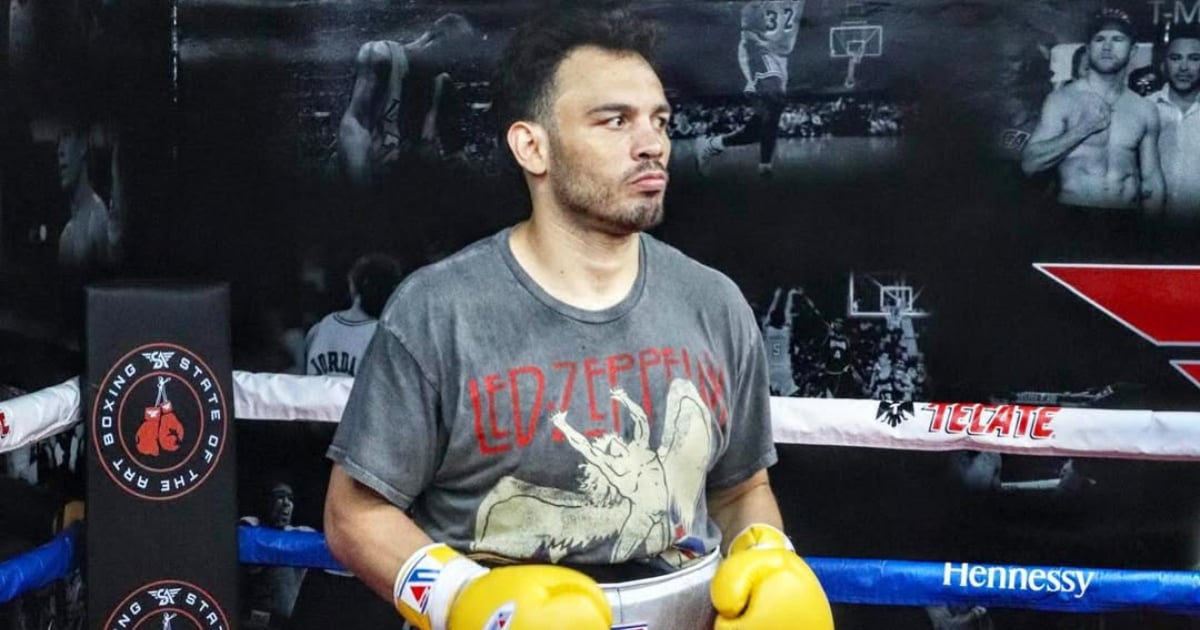The United States government announced on Thursday the arrest of renowned Mexican boxer Julio César Chávez Jr., who faces charges related to organized crime and arms trafficking linked to the Sinaloa Cartel. Officials confirmed his impending deportation in the coming days. "This affiliate of the Sinaloa Cartel, with an active arrest warrant for arms trafficking, ammunition, and explosives, was apprehended by U.S. Immigration and Customs Enforcement (ICE)," stated Tricia McLaughlin, Deputy Secretary of the Department of Homeland Security (DHS), in an official release.
Background and Arrest Details
Chávez Jr., a Mexican national and son of former boxer Julio César Chávez, was taken into custody on July 2 in Studio City, California. According to DHS, he entered the U.S. in August 2023 on a B2 tourist visa, which was set to expire in February 2024. On April 2, 2024, he sought legal permanent residency after marrying a U.S. citizen with connections to the late son of Sinaloa Cartel leader Joaquín "El Chapo" Guzmán.
Despite a December 2024 alert from U.S. Citizenship and Immigration Services (USCIS) to ICE, indicating Chávez posed a significant public safety threat, the Biden administration did not prioritize his case for immigration enforcement, allowing him to re-enter the country under parole in January 2025. Ultimately, after it was determined that Chávez, who fought and lost against actor and influencer Jake Paul in June, was unlawfully residing in the country and had made multiple fraudulent statements on his immigration application, ICE proceeded with his arrest and initiated expedited deportation proceedings.
Criminal Record and Cartel Ties
Chávez Jr. is subject to an arrest warrant in Mexico issued on January 14, 2023, for organized crime charges connected to arms and explosives trafficking. His criminal history in the U.S. is extensive; in 2012, he was convicted for driving under the influence of alcohol and drugs. In 2024, he was arrested in Los Angeles for illegal possession of an assault weapon and manufacturing or importing a short-barreled rifle, charges for which he was convicted.
The DHS claims Chávez is a member of the Sinaloa Cartel, which former President Donald Trump designated as a foreign terrorist organization in 2025. Authorities assert that this cartel is responsible for kidnappings, tortures, murders of U.S. citizens, and the massive trafficking of fentanyl into the United States.
Official Statements
"It is shocking that the previous administration identified this undocumented criminal as a public safety threat but chose not to prioritize his deportation," declared Deputy Secretary McLaughlin. "Under President Trump, no one is above the law, including world-famous athletes. Our message to any cartel affiliate in the United States is clear: we will find you, and you will face consequences. The days of unchecked cartel violence are over," she concluded.
Frequently Asked Questions about Julio César Chávez Jr.'s Arrest
What charges is Julio César Chávez Jr. facing in the United States?
Chávez Jr. is facing charges related to organized crime and arms trafficking connected to the Sinaloa Cartel, along with previous convictions for driving under the influence and illegal weapon possession.
Why was Julio César Chávez Jr. allowed to re-enter the U.S. despite his criminal record?
Despite being identified as a public safety threat, the Biden administration did not prioritize his case for immigration enforcement, allowing him to re-enter the U.S. under parole in January 2025.
What is the Sinaloa Cartel's impact on the United States?
The Sinaloa Cartel is accused of serious crimes, including kidnappings, tortures, murders of U.S. citizens, and the large-scale trafficking of fentanyl into the United States.
